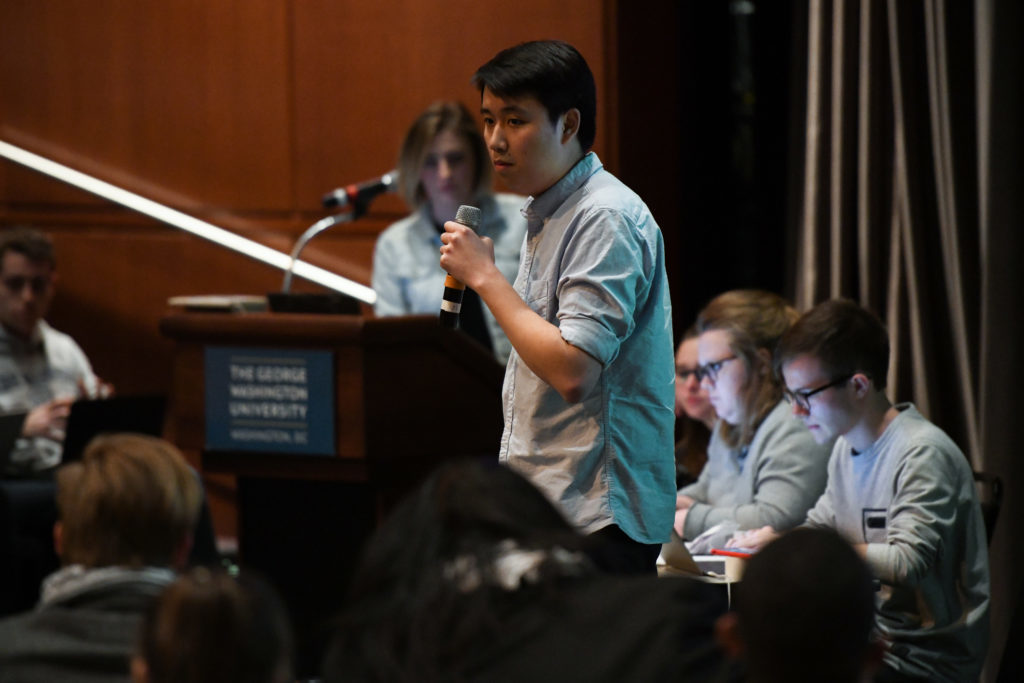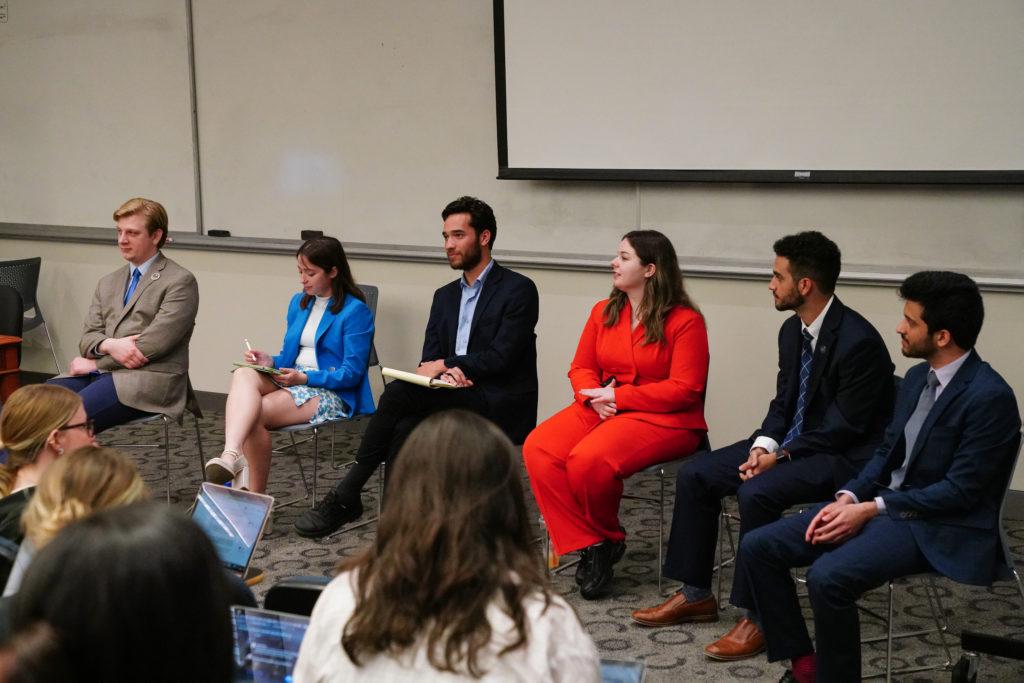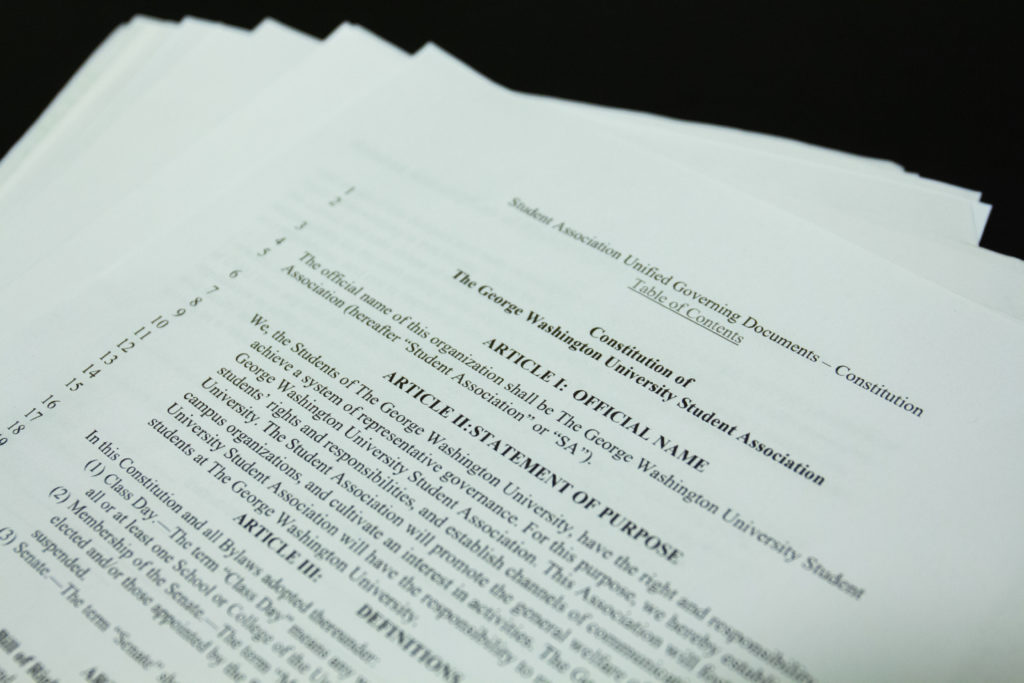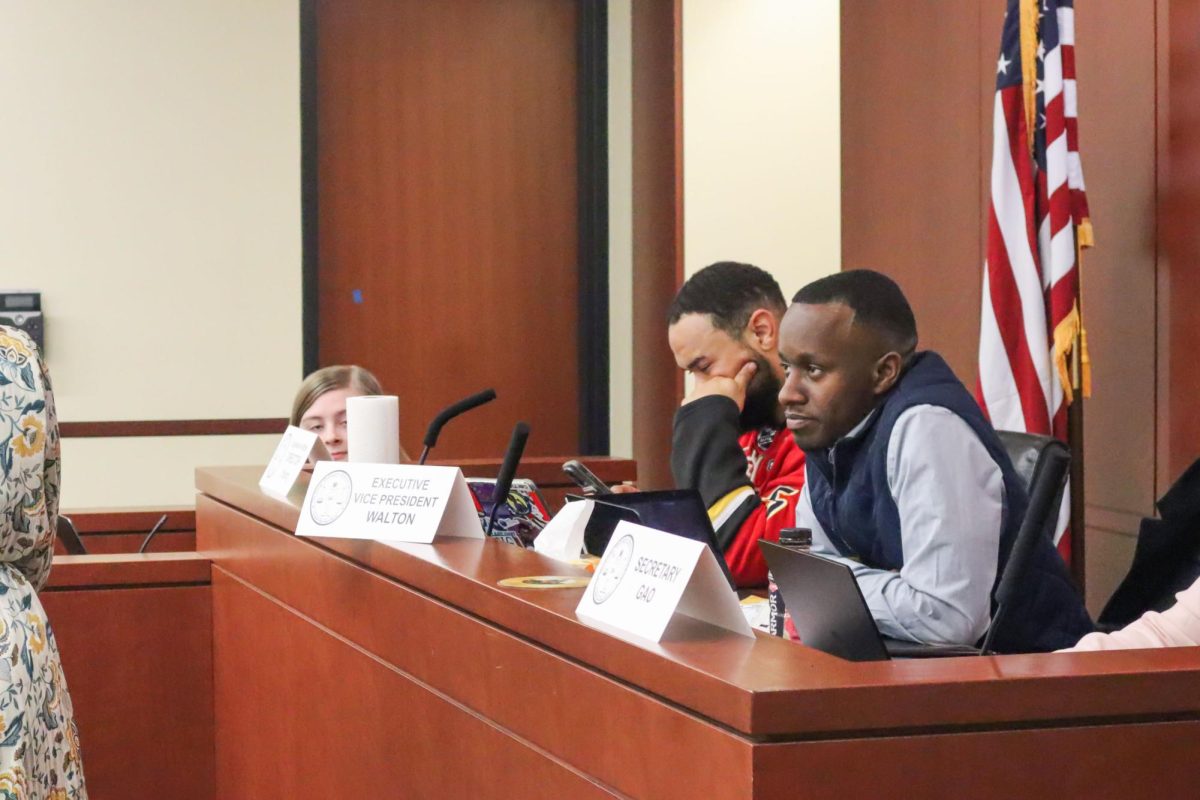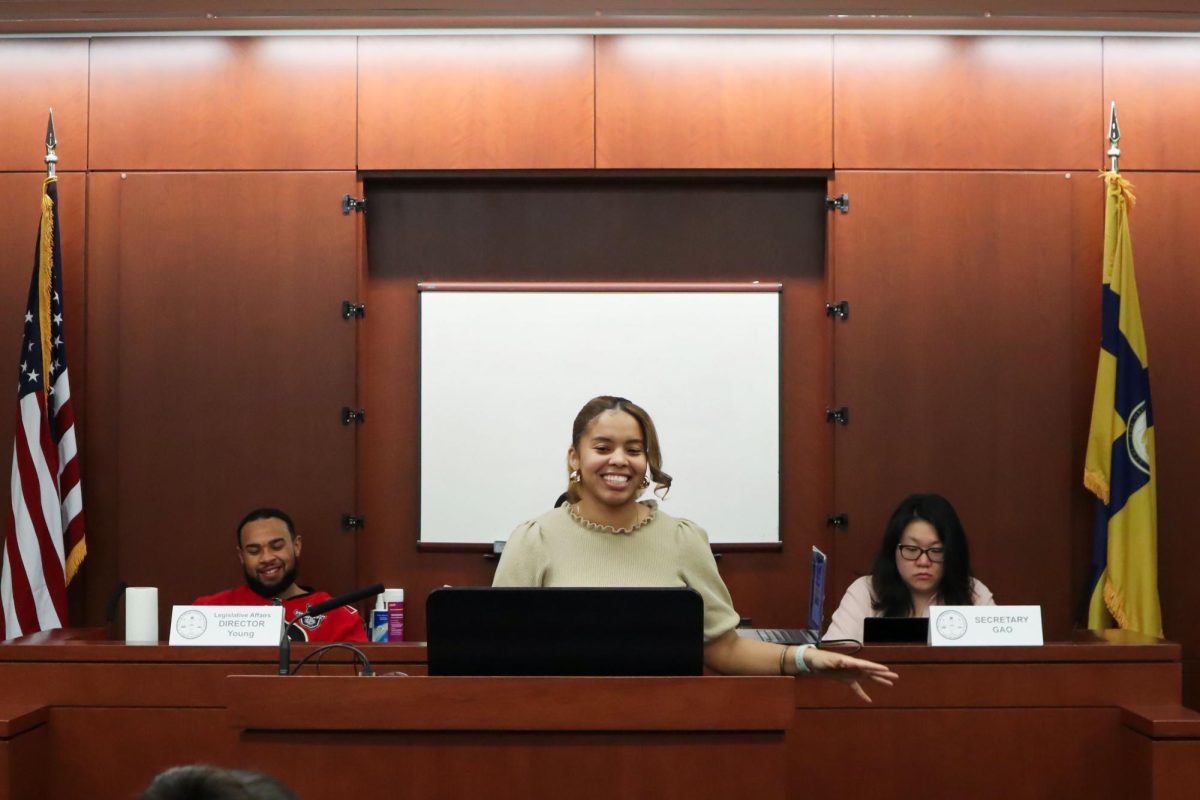D.C. government elections have always involved court battles and political drama, and the Student Association’s campaign season is no different.
Student Court cases between the Joint Elections Commission, the body in charge of administering SA elections, and SA candidates appealing their disqualification from the election ballot have taken place in five election cycles dating back to 1999. With another series of controversies this year, a trio of candidates, including two for SA president, sued the JEC late last month for their exclusion from the ballot, leading the Student Court to bar the JEC from holding elections until it resolved all cases.
John Olds, who chaired the JEC during the 2019 SA elections, said disagreements between the JEC and candidates arise when candidates become too involved in the SA’s politics, losing sight of the “student leadership” aspect of elections. He said the administration should find students outside of the SA focused on public service who “don’t take themselves too seriously” and encourage them to join the SA.
“The JEC can’t do much,” he said in an email. “But the administration can. GW has so many amazing, accomplished students that it could choose to showcase.”
The Hatchet looked back at the quarrels and squabbles within GW’s student government over the past two decades. Here’s a short history of JEC disputes:
2007: Campaign bus sparks Student Court battle
In 2007, the JEC disqualified former SA Sen. Matt Cohen, GWSB-U, after his election for surpassing the $500 spending limit imposed on senate candidates after he rented a school bus to campaign. He claimed he split the cost between other candidates, keeping his campaign expenses below the threshold at $360.
Cohen appealed to the Student Court and regained his senate seat after proving he split the cost with four other candidates, including then-executive vice presidential candidate Brand Kroeger and former SA presidential candidate David Wilkinson.
The court concluded the JEC ruled in an “arbitrary, capricious, and irrational” manner and cited Ferguson v. JEC, a 2002 decision that granted the court the power to overturn JEC decisions using an arbitrary and capricious standard.
“The JEC’s action of ignoring Mr. Kroeger’s and Mr. Wilkinson’s testimony saying that they incorrectly filed their financial forms and actually did split the costs with Mr. Cohen is such an arbitrary and capricious decision that it caused them to abuse their sanctioning power,” the court’s opinion reads.
2009: Presidential disqualification scraps runoff
Kyle Boyer, a 2009 SA presidential candidate, was just two votes away from winning the presidency in the first round of vote tallying, but the JEC disqualified him for failing to report the “fair market value” of a friend’s car he used for campaigning as part of his campaign spending.
Up against six other candidates in the general election, Boyer came in first place and earned 39.97 percent of votes, barely missing the 40 percent plurality threshold to win the election. The JEC ruled that his use of the car put him over the campaign spending limit, taking him off the runoff ballot between him and Julie Bindelglass, the second-place candidate with 23.1 percent of the vote and the eventual winner of the election.
Boyer argued against his disqualification in Student Court, but the justices denied him re-entry to the ballot in a 2-1 decision that stated the JEC did not “abuse its discretion.” He said if the JEC had not removed him from the ballot, he likely would have won the runoff election because of his near victory in the first round of voting.
“At the end of the day, the SA should be about students being represented, having the opportunity to serve and positive change being made on campus via the voice of the students,” he said in an interview.
2013: Presidential candidate lies about graduate application
In 2013, the JEC booted then-senior Kwasi Agyeman from the presidential ballot after finding that he lied about gaining admission into a master’s degree program in American studies. Jordan Hill, the JEC’s chief investigator at the time, said Agyeman did not have the proper qualifications to be on the ballot because of his undetermined future at GW and did not explain further due to privacy reasons.
“I’m not willing to go into any specifics about a student,” Hill said at the time. “It’s not appropriate. We stand by our decision.”
2017: No presidential election
In 2017, no presidential election ever happened.
The JEC delayed the SA presidential election in 2017 after the commission received a “large volume of complaints” against multiple candidates, including allegations of stalking, harassment and intimidation by presidential candidate Lande Watson. The JEC released a statement that announced a weeklong postponement of the elections for the JEC to investigate the complaints with “diligence” and “consideration.”
The JEC published several of the complaints with the names of the students who submitted them but eventually concealed the reports after the students said they had been subject to harassment in retaliation for submitting the complaints.
The commission ousted Watson from the ballot after finding her guilty of four out of 11 charges, including harassing rival candidate Cole Ettingoff and making threatening and false statements.
The JEC and the Division for Student Affairs delayed the presidential election until the fall semester, but the senate passed a bill in April stating that if the SA lacks a president-elect, the vice president-elect will assume the presidency. Executive Vice President-elect Peak Sen Chua assumed the role of SA president and began assembling a cabinet the next week.
No delayed presidential election took place, and Chua served as president for the rest of the term.
2023: Student Court cases set back election after presidential disqualifications
The JEC disqualified incumbent SA President Christian Zidouemba from the election late last month, ruling he improperly impersonated another candidate in an effort to gain signatures and appear on the ballot for his reelection campaign. The JEC disqualified presidential candidate and GW Entrepreneurship Club leader Mohamed Redzuan Bin Mohamed Raffe from the ballot the same day, striking down 14 of his 394 petition signatures for lacking GWIDs.
These disqualifications are at least the fourth and fifth of presidential candidates in JEC history. The JEC’s delay of the elections is the second since 1999, according to Hatchet archives.
The JEC also disqualified senate candidate Aidan Spencer from the ballot because students who signed his petition left out their schools. All three candidates appealed their decisions, and the Student Court prevented the JEC from holding an election until the court resolved the cases.
Zidouemba appealed the JEC’s ruling to disqualify him from the election last week, rejecting the JEC’s ruling that he gathered signatures for himself while claiming to collect them for rival candidate Keanu Rowe.
“The overwhelming number of complaints lodged against the JEC is a clear indication of their incompetence and lack of accountability,” Zidouemba said.
All three candidates subsequently withdrew their cases, giving the JEC the power to hold the election.
Erika Filter contributed reporting.


